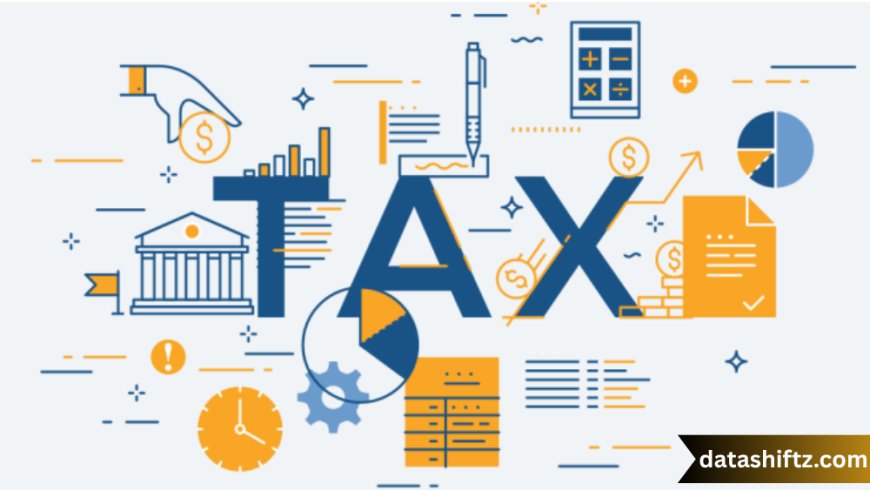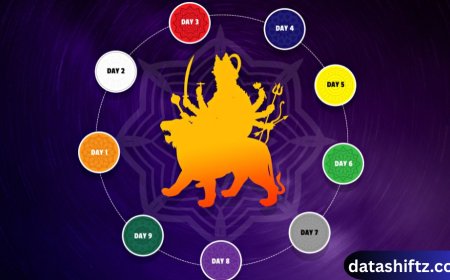Income Tax: Understanding the Backbone of Government Revenue

Introduction
Income tax is one of the most essential sources of revenue for governments across the world. It is a direct tax levied on the income of individuals, businesses, and other entities. The revenue generated from income tax is used to fund public services, infrastructure, defense, education, and other governmental responsibilities. For many countries, it forms a critical part of fiscal policy and economic planning.
In this comprehensive blog post, we will explore the concept of income tax, its importance, how it works, the types, rates, filing procedures, and the common challenges faced by taxpayers. This article will also delve into the Indian income tax system in detail, providing a holistic understanding for citizens, students, and professionals.
What is Income Tax?
Income tax is a mandatory financial charge imposed by the government on the earnings of individuals, corporations, or other legal entities. It can be derived from various sources such as salaries, investments, rent, business income, and capital gains. Taxpayers are obligated to file income tax returns (ITR) annually, declaring their income, exemptions, and tax payments.
Importance of Income Tax
-
Government Revenue: The primary source of funding for public infrastructure and services.
-
Wealth Redistribution: Progressive tax systems ensure higher earners contribute more.
-
Economic Control: Income tax policy can influence consumer behavior and investment decisions.
-
National Development: Funds collected help support education, healthcare, and defense.
Types of Income Tax
Income tax systems vary between countries, but generally fall under several broad categories:
1. Individual Income Tax
Paid by salaried individuals, freelancers, professionals, and other wage earners based on personal income.
2. Corporate Income Tax
Imposed on the net profits of companies and corporations.
3. Capital Gains Tax
Tax on profits from the sale of assets like stocks, real estate, and gold.
4. Dividend Distribution Tax (DDT)
Tax levied on dividends paid by companies to their shareholders (now largely removed in India).
5. Alternative Minimum Tax (AMT)
Applicable to individuals and corporations that receive certain tax exemptions to ensure minimum tax liability.
Indian Income Tax System – A Deep Dive
India’s income tax system is governed by the Income Tax Act, 1961, and administered by the Central Board of Direct Taxes (CBDT) under the Department of Revenue, Ministry of Finance.
Income Tax Slabs for Individuals (FY 2024-25)
There are two tax regimes in India – Old Tax Regime and New Tax Regime. Here's a simplified comparison:
| Income Range (₹) | Old Regime (With Exemptions) | New Regime (Without Exemptions) |
|---|---|---|
| Up to 2.5 lakh | Nil | Nil |
| 2.5 lakh – 5 lakh | 5% | 5% |
| 5 lakh – 7.5 lakh | 20% | 10% |
| 7.5 lakh – 10 lakh | 20% | 15% |
| 10 lakh – 12.5 lakh | 30% | 20% |
| 12.5 lakh – 15 lakh | 30% | 25% |
| Above 15 lakh | 30% | 30% |
Key Sections Under the Income Tax Act, 1961
-
Section 80C – Deductions on investments like PPF, NSC, ELSS (limit ₹1.5 lakh)
-
Section 80D – Deduction for health insurance premium
-
Section 24(b) – Interest on home loan
-
Section 10(14) – House Rent Allowance (HRA)
-
Section 10(10D) – Tax on life insurance maturity amount
Key Income Tax Return Forms
| ITR Form | Applicable To | Description |
|---|---|---|
| ITR-1 | Salaried Individuals (Income ≤ ₹50 lakh) | Simple return for salaried taxpayers |
| ITR-2 | Individuals & HUFs with capital gains | Income from multiple sources except business |
| ITR-3 | Business/professional income | Proprietors and professionals |
| ITR-4 | Presumptive income scheme users (Sec 44ADA) | Small businesses and freelancers |
| ITR-5 | LLPs, Partnership Firms | Used by firms except companies |
| ITR-6 | Companies | Companies not claiming exemption under Sec 11 |
| ITR-7 | Trusts, Political parties, NGOs | For entities required to file u/s 139(4A-4D) |
Filing Process and Deadlines
Filing your income tax return is now a digital process via the Income Tax e-filing portal. Here are the key steps:
Step-by-Step Process
-
Register/Login to the e-filing portal.
-
Choose the right ITR form based on your income type.
-
Fill in personal & financial details including income, deductions.
-
Calculate tax and verify using Form 26AS and AIS.
-
Pay any pending tax dues online.
Key Deadlines
| Event | Due Date (FY 2024-25) |
|---|---|
| Return Filing (Individuals) | 31st July 2025 |
| Return Filing (Audit Cases) | 31st October 2025 |
| Tax Audit Report Submission | 30th September 2025 |
Common Challenges Faced by Taxpayers
-
Choosing Between Regimes: Old vs New can be confusing.
-
Errors in Form 26AS: Discrepancies between actual TDS and reported TDS.
-
Document Mismanagement: Lack of record keeping of investment proofs.
-
Mismatch of Income Sources: Not accounting for bank interest, rental income, or foreign income.
-
Missed Deductions: Many miss out on eligible deductions due to lack of awareness.
Penalties for Non-Compliance
Failure to file your income tax return or incorrect declarations can lead to penalties under the Income Tax Act.
| Offense | Penalty |
|---|---|
| Late filing (After due date) | ₹1,000 to ₹5,000 under Section 234F |
| Misreporting income | 50%-200% of tax underreported |
| Failure to pay advance tax | Interest under Section 234B & 234C |
| Non-filing of ITR | Possible prosecution up to 7 years |
Benefits of Timely Filing
-
Avoid penalties and interest on delayed payment.
-
Easy loan and visa approvals as ITR acts as proof of income.
-
Faster tax refunds for excess TDS or advance tax.
-
Carry forward losses (e.g., capital loss) for future set-off.
-
Compliance credibility in the financial ecosystem.
Future of Income Tax in India
India is gradually moving toward faceless assessments, AI-driven verification, and pre-filled returns. The emphasis is on simplifying tax filing, enhancing compliance, and widening the taxpayer base.
The government continues to refine both the technological infrastructure and legal provisions to ensure taxpayers face minimal friction while maintaining high transparency standards.
Conclusion
Income tax is more than just a financial obligation—it's a pillar supporting national development. Whether you are an individual earning a salary, a freelancer, or a large corporation, being informed about income tax laws is essential. With proactive planning, awareness of deductions, and timely compliance, you can optimize your taxes and contribute to a more structured and prosperous economy.






























